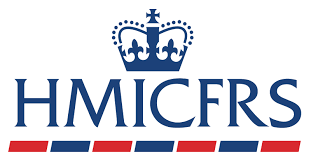Julia Mulligan responds to HMICFRS police efficiency report

Julia said: “I welcome the report from HMICFRS today as it has brought into focus some important issues that we have been dealing with for some time. Indeed, I have been in close contact with our chief HM Inspector from the outset of this inspection several months ago, and am in broad agreement with them on the findings. I have also been saying for some time that North Yorkshire Police has room to improve its efficiency and this report confirms much of my own analysis.
“Having said this, I do believe that the force has extremely strong foundations and, in comparison to others, is relatively well funded so is in a good position to move forwards.
“In this regard, as you would expect, the Chief Constable has had for some time now a number of programmes and plans underway.
“Firstly, the police force has developed an excellent ability to analyse demand and they are, more than ever, now applying these talents more widely, working in close collaboration with partners in North Yorkshire and beyond. For example, in the coming weeks we shall see new initiatives with health and blue light services.
“I am however concerned about the impact other organisations are having on the police. For example, last week, the Government published a report that showed the ambulance service is not responding in the way it should and the police are often left to deal with the consequences, having to transport mental health patients to hospital in over 65 per cent of cases. The police’s data also shows that there are up to five incidents on a typical weekend when officers have to transport injured people to hospital because of ambulance delays. This is not good enough and is something I shall be raising with the people in charge of the ambulance service.
“The report also acknowledges the work being put into developing the police’s workforce. As I have said before, this is a long term programme, as the demands on the police are changing and new skills are needed. The force is currently in the midst of working this through, which this report highlights. To this end, the Deputy Chief Constable is leading on a plan, considering things like the mix between civilians and warranted officers. I believe the capacity and capability of the police is not just about police officer numbers, but about having the right people, with the right skills, in the right jobs. In addition, I am also pleased to see ongoing recruitment targeted specifically at attracting applicants from diverse backgrounds.
“On the question of ICT, this is a challenge for North Yorkshire and for many other police forces. I inherited a problem, an underinvestment in IT, which led to a £10m programme to tackle the underlying issues and to invest in new transformational services. These are being rolled out, and we have recently recruited a new Chief Digital Information Officer, as well as making the successful move to Alverton Court, which involved a significant upgrade to our ICT infrastructure. This work is ongoing, and there are challenges, which are reflected in this report.
“However, I do feel that it’s not all bad news—for example, our investment in Automatic Number Plate Recognition technology has been up and running for some time, helping the fight against cross-border crime. However, the roll out of the operational mobile working programme has not been as swift as it could have been, in part due to the move to Alverton Court, but it is now on track to be fully rolled out early next year. I know that officers are very keen for these changes to happen, and I am confident in the solution.
“Finally, I believe at the heart of HMICFRS report, lie a number of key challenges to police services generally—principally the changing nature of crime, demand on the police and the opportunities and threats from the digital age. North Yorkshire Police has work to do to meet these, but I fundamentally believe that the service to the public is good, and that our position as the safest place in England is evidence of that.”
09 November 2017
PEEL: police efficiency 2017 – North Yorkshire Police
Summary
As in PEEL efficiency 2016, this inspection:
- examined how well forces understand the demand for their service, how well they match their resources to that demand, and how well they are planning to meet future demand; and
- provides an assessment of their efficiency.
This report sets out the findings for North Yorkshire Police.
The efficiency reports will be followed by reports on legitimacy in December 2017 and effectiveness in early 2018, which together make up the three pillars of the annual PEEL assessment.
Get the report
PEEL: police efficiency 2017 – North Yorkshire Police
Get the national overview
PEEL: police efficiency 2017 – a national overview
Get the press release
PEEL: police efficiency 2017 – force press releases
National press release: ‘Significantly stressed’ police forces need to continue to change
